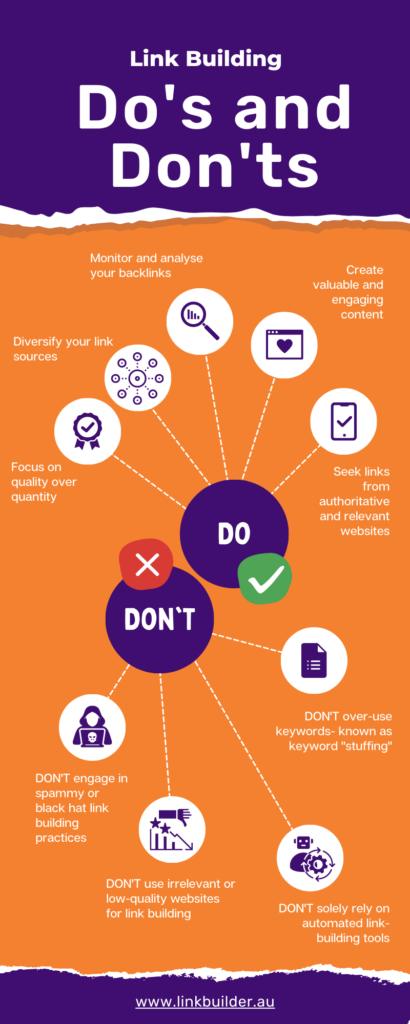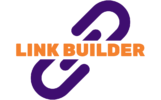Welcome to our blog! In today’s digital landscape, building a strong online presence is crucial for businesses to succeed. One effective strategy to enhance your website’s visibility, improve search engine rankings, and drive targeted traffic is through link building. In this article, we will explore the power of link building and how it can benefit your business.
Section 1: Understanding Link Building
- What is link building and why is it important?
- The role of backlinks in search engine optimisation (SEO).
- Different types of links: internal, external, and inbound.
- How search engines perceive and evaluate links.
Section 2: The Benefits of Link Building
- Improved search engine rankings: How quality backlinks contribute to higher search visibility.
- Increased organic traffic: Exploring the connection between backlinks and website traffic.
- Enhanced credibility and authority: The impact of reputable websites linking to your content.
- Referral traffic: How backlinks can generate valuable visitors from other websites.
Section 3: Effective Link Building Strategies
- Creating high-quality content: The foundation for attracting natural backlinks.
- Guest blogging and content partnerships: Leveraging collaborations to build relevant links.
- Building relationships with influencers and industry experts.
- Social media promotion and amplification: Maximising the reach of your content.
- Directory and resource page submissions: Exploring opportunities for link acquisition.
Section 4: Link Building Dos and Don’ts
- White hat vs. black hat link building techniques.
- Common link building mistakes to avoid.
- Ensuring relevance and quality in link acquisition.
- Monitoring and managing your backlink profile.
Section 5: Tools and Resources for Successful Link Building
- Recommended tools for backlink analysis, competitor research, and link tracking.
- Online communities and forums for networking and learning.
- Industry blogs and publications to stay updated on the latest trends.
Understanding Link Building
Link building is a powerful strategy that can greatly enhance your website’s online presence. It involves obtaining links from other websites that direct users to your site. Search engines, like Google, consider these links as a vote of confidence and credibility for your website. The more high-quality links you have, the more likely search engines will recognise your website as trustworthy and authoritative.
The Importance of Backlinks in SEO
Backlinks play a vital role in search engine optimisation (SEO). They are like digital references from other websites to yours, indicating that your website is worth exploring. Search engines view backlinks as endorsements from reputable sources. The higher the number and quality of backlinks, the more search engines will regard your website as a valuable resource to display in search results.

Different Types of Links to Know
Let’s familiarise ourselves with the various types of links. First, we have internal links, which connect different pages within your own website. These links help users navigate through your site and establish a hierarchical structure. Then, there are external links, which are links from your website to other external websites. Lastly, inbound links, also known as backlinks, are links from other websites that lead users back to your site. Inbound links are particularly important for building credibility and authority in the eyes of search engines.
How Search Engines Assess Links
Search engines employ complex algorithms to evaluate links and determine their value. They consider factors such as the relevance of the linking site to your content, the authority and reputation of the linking site, and the anchor text used in the link. These assessments help search engines gauge the trustworthiness and relevance of the linked content, ultimately influencing search rankings.
The Benefits of Link Building
Link building plays a pivotal role in improving your website’s search engine rankings. Search engines like Google consider backlinks as a vote of confidence from other reputable websites. When authoritative sites link to your content, search engines perceive your website as more valuable and trustworthy. As a result, your website is more likely to rank higher in search engine results, leading to increased visibility and organic traffic.
Increased Organic Traffic
Quality backlinks not only improve your search engine rankings but also drive targeted organic traffic to your website. When users come across a link to your site on another trusted platform, they are more likely to click on it, resulting in referral traffic. These visitors are often highly interested in your niche or industry, increasing the chances of conversions, engagement, and long-term customer relationships.
Enhanced Credibility and Authority
Link building helps to establish your website as a credible and authoritative source within your industry. When other reputable websites link to your content, it sends a signal to both search engines and users that your website is a reliable source of information. This association builds trust and enhances your brand’s reputation, positioning you as an expert in your field.
Referral Traffic from Quality Sources
Link building allows you to tap into referral traffic from high-quality sources. When your website is linked from authoritative sites, it exposes your brand to their audience, generating targeted visitors who are more likely to engage with your content and offerings. These visitors can become potential customers, subscribers, or even advocates for your brand, further expanding your reach and influence.
Long-Term Business Partnerships
Building links often involves engaging with other businesses and website owners in your industry. This process opens doors for collaboration, networking, and forging long-term business partnerships. By connecting with like-minded professionals, you can create mutually beneficial relationships, such as guest blogging opportunities, co-marketing campaigns, or cross-promotional initiatives. These partnerships not only contribute to your link building efforts but also provide additional avenues for business growth and expansion.
Effective Link Building Strategies
One of the most powerful ways to attract natural backlinks is by creating compelling and shareable content. Craft informative, engaging, and valuable content that resonates with your target audience. When your content is genuinely useful and unique, other websites and bloggers are more likely to link to it as a resource. Consider creating comprehensive guides, industry reports, case studies, or thought-provoking blog posts that provide insights and solutions.
Guest Blogging and Content Partnerships
Collaborating with other websites through guest blogging and content partnerships is an excellent way to secure quality backlinks. Reach out to authoritative websites in your niche and offer to write guest posts that provide value to their readers. In return, you can include a link back to your website within the author bio or content. Additionally, explore opportunities for content partnerships where you can co-create content with other industry experts, allowing you to gain exposure and acquire valuable backlinks.
Building Relationships with Influencers and Industry Experts
Forge relationships with influencers and industry experts who can amplify your content and provide valuable backlinks. Engage with them on social media, participate in industry events, and offer support or collaboration. When influencers and experts recognise your value and expertise, they may naturally link to your content or mention your website in their articles, interviews, or social media posts.
Utilise Social Media
Leverage the power of social media to promote and amplify your content, increasing its chances of getting shared and linked to. Share your content across relevant social media platforms and engage with your audience. Encourage social sharing by incorporating social sharing buttons on your website and creating shareable visuals and infographics. As your content gains traction on social media, it increases the likelihood of attracting backlinks from other websites and blogs.
Submit to Directories and Resource Pages
Submit your website to relevant directories and resource pages within your industry. These platforms often provide opportunities for listing your website and acquiring backlinks. Look for authoritative directories and niche-specific resource pages that can drive targeted traffic to your site and boost your link profile.

Tools and Resources for Successful Link Building
Backlink analysis tools provide insights into your existing backlink profile, helping you understand the quality and quantity of your current links. Tools like Ahrefs, Moz, and SEMrush allow you to analyse your backlinks, assess their authority and relevance, and identify any potential issues or opportunities for improvement. These tools provide valuable data to guide your link building strategy and track your progress over time.
Competitor Research Tools: Examining the link profiles of your competitors can provide valuable insights and help you discover new link building opportunities. Tools like Ahrefs and Moz offer competitor analysis features, allowing you to identify websites that are linking to your competitors but not to your own website. By understanding the backlink strategies of your competitors, you can gain inspiration and uncover potential sources for acquiring high-quality links.
Outreach and Relationship Management Tools: Managing outreach campaigns and building relationships with other website owners and influencers can be time-consuming. Tools like BuzzStream and Pitchbox can streamline your outreach efforts, enabling you to track and organise your outreach campaigns, manage email templates, and monitor responses. These tools can help you stay organised and maintain effective communication with potential link partners.
Social Media Platforms: Social media platforms can be powerful tools for link building and amplifying your content. Share your content on platforms like Twitter, Facebook, LinkedIn, and Instagram to reach a wider audience and attract potential link opportunities. Engage with industry influencers, share relevant content, and participate in discussions to build connections and increase the chances of obtaining valuable backlinks.
Online Communities and Forums: Engaging with online communities and forums relevant to your industry can be an effective way to build connections and acquire backlinks. Participate in discussions, answer questions, and provide valuable insights to establish yourself as an authoritative figure. While doing so, include relevant links to your website when it adds value to the conversation. However, be mindful of community rules and avoid excessive self-promotion.
Industry Blogs and Publications: Stay updated on the latest industry trends, news, and opportunities for guest blogging by following influential industry blogs and publications. These platforms often accept guest contributions, providing you with a chance to showcase your expertise and acquire high-quality backlinks. Engaging with the readership of these publications can also lead to networking opportunities and further link building prospects.
Link Building the Right Way
Remember, while these tools and resources are valuable, they should supplement your overall link building strategy. Building genuine relationships, creating valuable content, and staying proactive in your outreach efforts are essential components of successful link building. Continually monitor your progress, adapt your strategies as needed, and consistently provide value to your audience to achieve long-term link building success.
Leveraging the right tools and resources can significantly enhance your link building efforts and contribute to the growth of your website’s authority and visibility. Incorporate these tools into your workflow and stay proactive in seeking out valuable link building opportunities. Best of luck in your link building journey!

